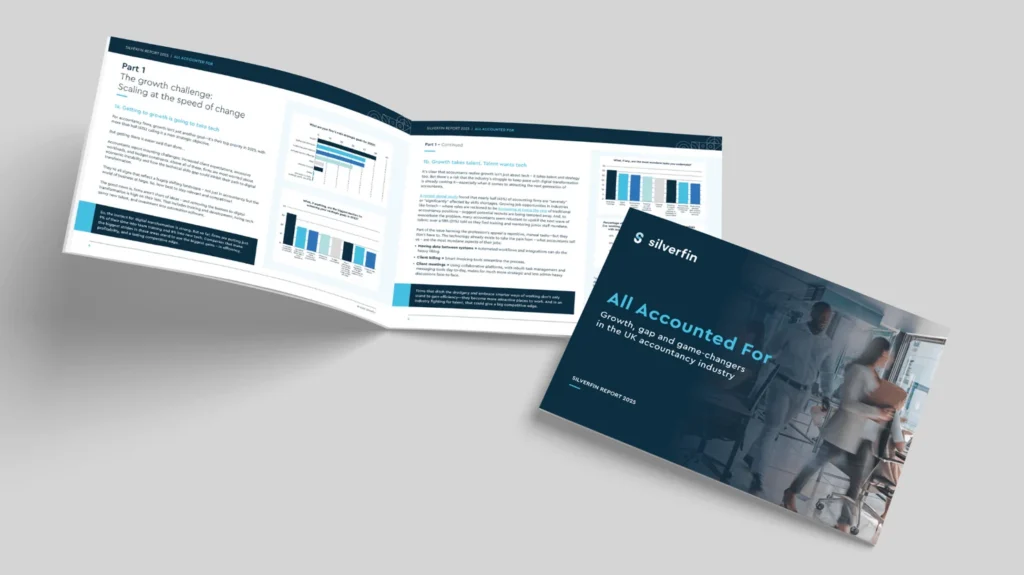The financial services industry is evolving rapidly, and Starling Bank is at the forefront of this transformation. In a recent episode of Silver Linings, Phil Hobden sat down with Jason Maude, chief technology advocate at Starling Bank, to discuss the bank’s approach to technology, resilience and AI adoption in banking.
A different approach to banking technology
Starling Bank has disrupted the traditional banking model by building its own banking platform from scratch. Jason explained how the bank focused on adopting best-in-class technology practices, not just from the financial sector but across industries.
“What we’ve come to realise is that actually, if you want to minimise risk the correct solution is not to do one release of code every 3 months, 6 months, or what have you. It’s to do lots of releases of code all the time. Starling Bank does dozens of releases of code every day.”
This approach, he explained, helps prevent major system failures. Instead of a single, high-risk release, Starling continuously deploys incremental changes. Jason contrasted this with legacy banks, where infrequent large-scale updates can lead to catastrophic failures, such as cashpoints shutting down entirely.
By maintaining full control over its technology stack, Starling has been able to innovate rapidly. Features like freezing a card instead of cancelling it, creating savings pots, and real-time transaction insights were pioneered by Starling and later adopted by traditional banks.

The role of AI in banking
While AI is often hailed as the future of financial services, Jason emphasised the need for pragmatism in its implementation.
“I use the word tool deliberately. AI isn’t magic. It is a tool. It’s a complicated tool, it’s a difficult tool – but it’s a tool nonetheless,” he said.
Jason cautioned against blindly adopting AI without clear use cases, using an amusing analogy:
“Whenever I see someone running around and going, ‘Are you AI ready? How are you going to use AI?’ I replace the word AI with the word screwdriver. If you had a massive conference entitled, ‘Is your bank’s screwdriver ready?’ we’d all laugh. You use screwdrivers when it’s appropriate.”
Similarly, Jason stresses, AI should only be used when appropriate. In short, AI should only be implemented where it genuinely adds value, particularly in areas involving vast amounts of data processing.
Why Starling Bank avoids AI in customer service
One of the most common AI applications in banking is customer service chatbots. However, Starling has consciously avoided this route. Jason believes that while chatbots can provide factual answers, they fail at delivering emotional reassurance, which is essential in banking.
“A lot of the time, when people contact customer service, they’re not just looking for an answer – they’re looking for someone to help take on the emotional load that they’re feeling. The problem is, chatbots can’t provide that,” he explained.
Instead, Starling Bank operates a 24/7 human-staffed call centre to ensure customers receive empathetic, real-time support.
The importance of data standardisation
Data is the backbone of AI, and Jason emphasised that banks must first solve data fragmentation issues before implementing AI effectively.
“It’s a massive problem in the finance industry. One of Starling Bank’s biggest advantages is that we don’t have data fragmentation. We’ve built a unified platform where data is easily transferable and there is always a golden source.”
Jason highlights how critical data standardisation is, not just for AI adoption, but for improving operational efficiency across financial services.
Open banking vs AI: which is more transformative?
When asked whether AI or open banking would have a bigger impact on financial services, Jason provided a balanced perspective.
“I think AI will be more significant in the long run. But in banking, it won’t be transformational – it will be about efficiency gains.”
Open banking, he noted, was initially designed to promote competition but has since pivoted towards becoming a new type of payment rail. However, challenges remain around fraud protection and compliance, which need to be addressed before it can fully realise its potential.
The future of AI in banking
Looking ahead, Jason expects AI to play an increasingly important role in banking, though not necessarily in the ways people expect. Rather than replacing jobs, AI will likely be used to enhance efficiencies, improve fraud detection and support internal operations.
“There will be banks like Starling, which create a lot of their own systems in-house, but for many, AI-based solutions will come from specialist technology providers rather than being built internally.”
He also warned against hype-driven financial institutions branding themselves as ‘AI-first.’
“Any financial services company that boasts, ‘We’re AI-driven!’ will, in a few years, swap that out for ‘quantum computing’ or whatever the next trend is.”
Final thoughts
Jason’s insights provide a refreshing and pragmatic take on AI’s role in financial services. While AI is undoubtedly a powerful tool, its success depends on thoughtful implementation, strong data foundations, and clear safeguards. For Starling Bank, the focus remains on resilience, reliability and ensuring technology serves customers – not the other way around.

















